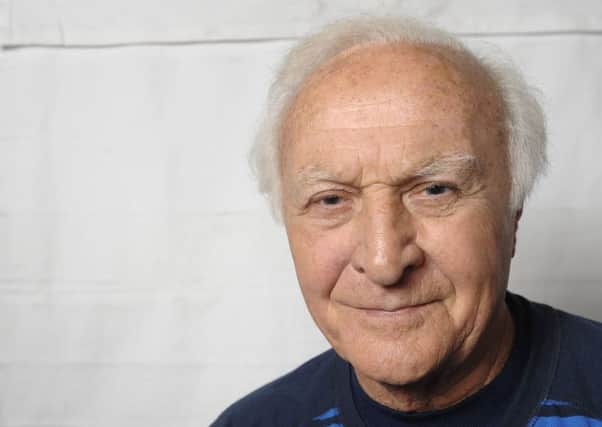Obituary: Robert Loggia, actor


Robert Loggia was an American actor who exuded rough-edged, straight-talking Italian-American character. It’s little surprise that the native New Yorker was most often called upon to play mobsters or characters with a murky relationship with the law throughout his career, although his impressive versatility meant he often successfully played against this type as well.
Making his screen debut in the mid-1950s, Loggia was for many years a jobbing television actor, before hitting a hot streak on the big screen in middle age. This lasted throughout the 1980s and saw him called upon in later life for memorable cameo appearances. Most famously, he was Frank Lopez, the flash Miami drug dealer who employed, was usurped by and was eventually murdered on the orders of Al Pacino’s title character in Brian DePalma’s Scarface (1983); Sam Ransom, the San Francisco gumshoe hired by Glenn Close in noir thriller Jagged Edge (1985), the role which brought Loggia his only Oscar recognition, a nomination as Best Supporting Actor; and Mr MacMillan, the toy company boss who took Tom Hanks’ man-child under his wing in Big (1988).
Advertisement
Hide AdAdvertisement
Hide AdHe was never one of the main players in any of these movies, but Loggia could play it seedy, angry, genial or friendly, and he was a strong player in each project where he was given a chance to shine. Anyone who saw them will remember the scene in Big where he merrily tap-danced out a tune with Hanks on a toy store floor piano, or – at the other end of the tonal scale – the scene where he runs a tailgating motorist off the road and delivers a sermon on highway etiquette as he viciously beats him in David Lynch’s Lost Highway (1997).
His was the serrated final line of Jagged Edge, a caustic “f*** him… he was trash,” and he also appeared as Richard Gere’s no-good Army vet father in An Officer and A Gentleman (1982), as a mob boss’ son in the John Huston-directed Jack Nicholson vehicle Prizzi’s Honour (1985), and as an army general in all-star alien invasion blockbuster Independence Day (1996), as well as in three instalments of the Pink Panther series (1978’s Revenge of…, 1982, Trail of… and 1983’s Curse of…).
On television, he also mustered a range of relatively minor appearances in his later years into a collection of distinctive calling cards for his scene-stealing abilities.
He was unconventional FBI agent Nick Mancuso in the political thriller Favorite Son (1988), which spun off into his one major starring role in the show Mancuso, FBI (1989); it may have only lasted for a season, but Loggia was Emmy-nominated for the part.
He also received an Emmy nomination for his single-episode role as the title character’s grenade-toting granddad in the hit comedy Malcolm in the Middle (2000), and was elevated to the unofficial pantheon of latter-day gangster film greats when he appeared in The Sopranos (2004) as savage and foul-mouthed old-school hood Feech La Manna. A somewhat bizarre commercial appearance for Minute Maid orange juice in 1998 briefly made “woah, Robert Loggia!” an American playground catchphrase of the time.
Born Salvatore Loggia in the New York borough of Staten Island, Loggia was the son of two Sicilian immigrants, Elena and shoemaker Beniamino.
He studied at the private liberal arts establishment Wagner College in his home neighbourhood and then went on to study journalism at the University of Missouri, graduating in 1951. From there he signed up for the army, and it was while serving in the Panama Canal region that he had his first taste of screen time as a television and radio anchor on the American Forces Network. Demobbed and back in New York City, he studied acting at the Actors Studio and began to make forays on to the New York stage and into television.
Early successes included an uncredited film debut in Somebody Up There Likes Me (1956), the title role in the Disney miniseries The Nine Lives of Elfogo Baca (1958) and the part of Joseph in The Greatest Story Ever Told (1965), while Loggia’s early television repertoire demonstrated the kind of hard-working versatility which would characterise his later years. In his career’s early days he took roles in series like Alfred Hitchcock Presents, Quincy, Little House on the Prairie and The Rockford Files, and continued to work even through the illness of his final years.
Advertisement
Hide AdAdvertisement
Hide AdRobert Loggia was diagnosed with Alzheimer’s disease in 2010, the same year he was awarded the Ellis Island Medal of Honour, an annual award for “outstanding American citizens from all walks of life who have distinguished themselves through significant contributions to the country”; past winners include Rosa Parks, Frank Sinatra and Muhammad Ali.
He died from complications of the disease five years later, and is survived by his second wife of 33 years Audrey, his three adult children from his first marriage, Tracey, John and Kristina, and his stepdaughter Cynthia.
He was comfortable in the role of character actor, he once said, because “I never wear out my welcome.”